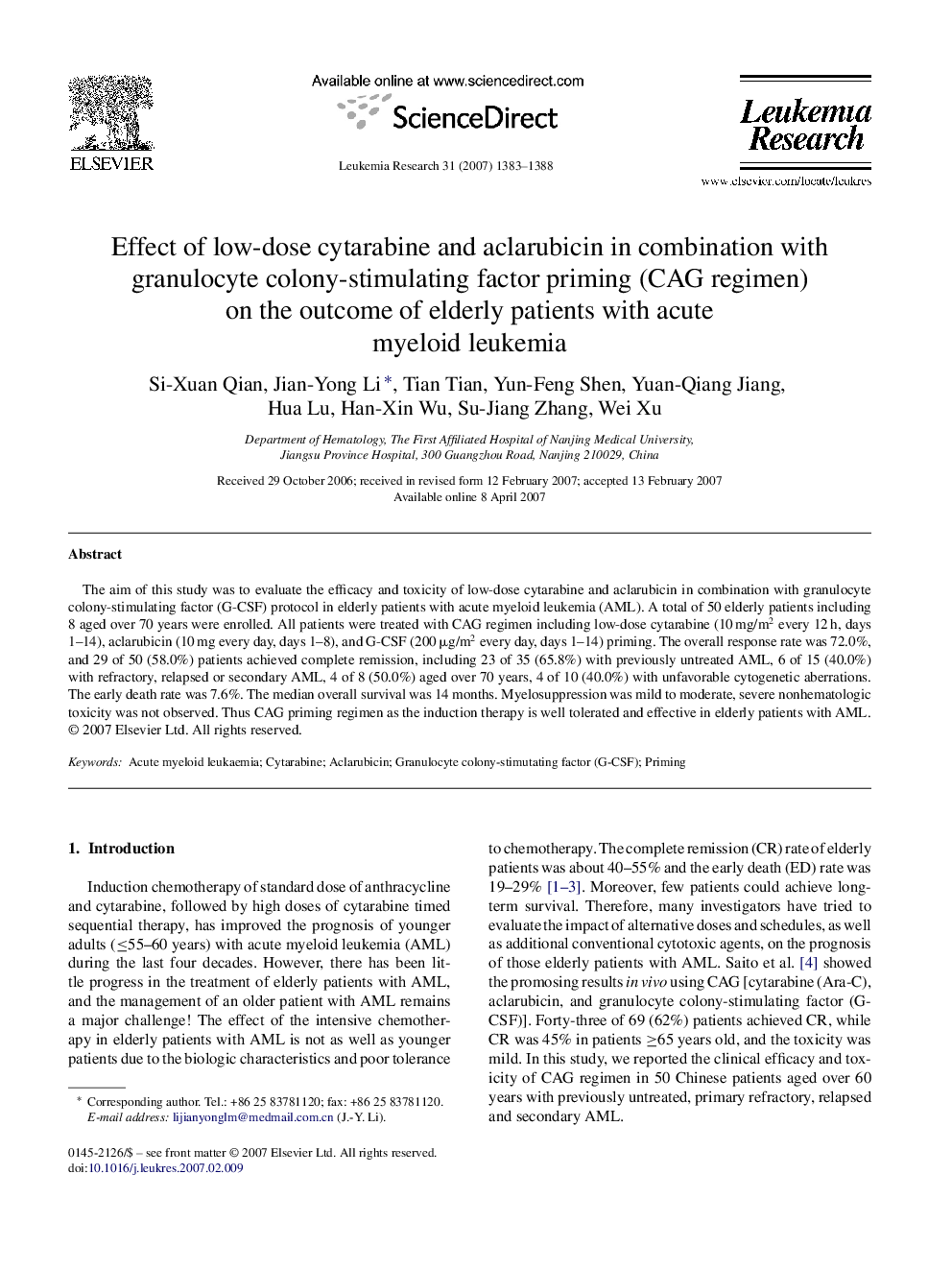| Article ID | Journal | Published Year | Pages | File Type |
|---|---|---|---|---|
| 2140028 | Leukemia Research | 2007 | 6 Pages |
The aim of this study was to evaluate the efficacy and toxicity of low-dose cytarabine and aclarubicin in combination with granulocyte colony-stimulating factor (G-CSF) protocol in elderly patients with acute myeloid leukemia (AML). A total of 50 elderly patients including 8 aged over 70 years were enrolled. All patients were treated with CAG regimen including low-dose cytarabine (10 mg/m2 every 12 h, days 1–14), aclarubicin (10 mg every day, days 1–8), and G-CSF (200 μg/m2 every day, days 1–14) priming. The overall response rate was 72.0%, and 29 of 50 (58.0%) patients achieved complete remission, including 23 of 35 (65.8%) with previously untreated AML, 6 of 15 (40.0%) with refractory, relapsed or secondary AML, 4 of 8 (50.0%) aged over 70 years, 4 of 10 (40.0%) with unfavorable cytogenetic aberrations. The early death rate was 7.6%. The median overall survival was 14 months. Myelosuppression was mild to moderate, severe nonhematologic toxicity was not observed. Thus CAG priming regimen as the induction therapy is well tolerated and effective in elderly patients with AML.
